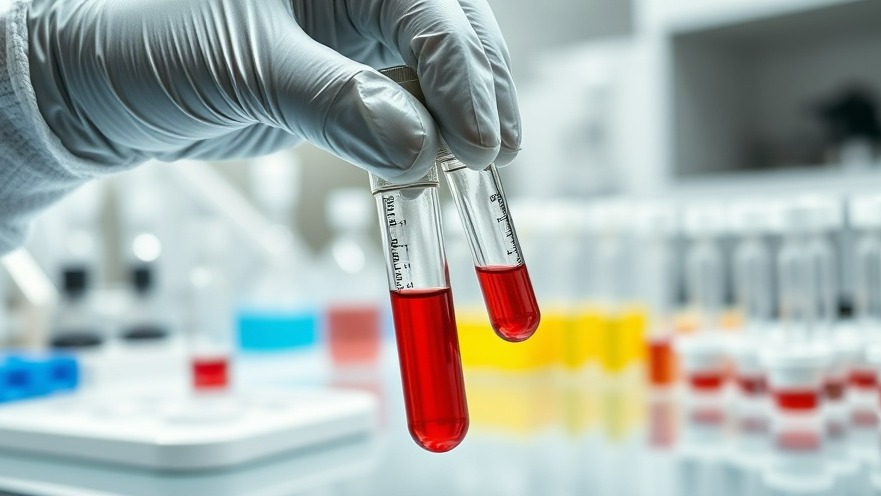
Revolutionizing Cancer Diagnostics: The Rise of Liquid Biopsy
Cancer remains one of the most daunting challenges in modern medicine, affecting millions globally. However, recent developments in diagnostic techniques are transforming patient care. One such innovation is the introduction of liquid biopsies, a revolutionary approach that enables clinicians to diagnose lung cancer more swiftly and accurately. This new blood test method is set to change the landscape of cancer treatment in the NHS, positioning it at the forefront of a global movement towards more personalized and timely healthcare.
Understanding Liquid Biopsies: A Game Changer in Oncology
Liquid biopsies involve analyzing circulating tumor DNA (ctDNA) from blood samples to identify genetic mutations indicative of cancer. This technique allows for the detection of lung cancer with remarkable speed, enabling clinicians to initiate targeted therapies up to two weeks earlier than traditional tissue biopsy methods. The significance of this cannot be overstated; for many patients, earlier intervention could mean the difference between managing the disease effectively and facing dire health consequences.
Economic and Clinical Benefits of Liquid Biopsies
The economic implications of implementing liquid biopsies are noteworthy. An independent assessment during the pilot phase projected a potential saving of up to £11 million per year for the NHS in lung cancer care alone. This reduction in costs, coupled with the ability to streamline diagnostic processes, makes a compelling case for the widespread adoption of this technology. As over 15,000 patients benefit annually from this testing, the potential impact is both profound and far-reaching.
Patient-Centric Approach: Enhancing Quality of Life
Beyond the obvious clinical benefits, liquid biopsies cater to the often-overlooked aspect of patient experience. By minimizing the need for unnecessary diagnostic procedures and invasive treatments, this approach significantly enhances patients' quality of life. The pilot program demonstrated not only quicker results—approximately 16 days earlier than the conventional method—but also a decline in the need for chemotherapy in specific cases. This shift towards a more patient-centric model of care is a vital step in enhancing treatment satisfaction and outcomes.
Future Outlook: Expanding Liquid Biopsy Utilization
Excitingly, the promise of liquid biopsies doesn't stop with lung cancer. NHS England is actively exploring their application in diagnosing other serious cancers, including pancreatic and gallbladder cancer. The implications of this are enormous. As liquid biopsies become more refined and widely accepted, they may revolutionize how we approach oncology, broadening the horizon for timely and personalized cancer treatment.
Current Landscape: Standing at the Crossroads of Innovation
Liquid biopsies represent a significant advancement in the fight against cancer, particularly in a landscape where time is often of the essence. The collaboration between healthcare professionals and researchers enhances our capability to provide the most precise and expedited treatment options available. For concierge health practitioners, being abreast of such innovations not only prepares them to better serve their patients but also positions their practices as leaders in modern healthcare.
Conclusion: Taking Action for Optimal Patient Outcomes
The transition towards liquid biopsies emphasizes the ongoing need for healthcare providers to stay informed about emerging trends that can transform patient care. Practitioners should advocate for and educate their patients on this revolutionary testing method. As more patients gain access to such pioneering technologies, the promise of faster, more accurate cancer diagnostics will continue reshaping the journey through cancer treatment, fostering hope and improving outcomes.
 Add Row
Add Row  Add
Add 




Write A Comment